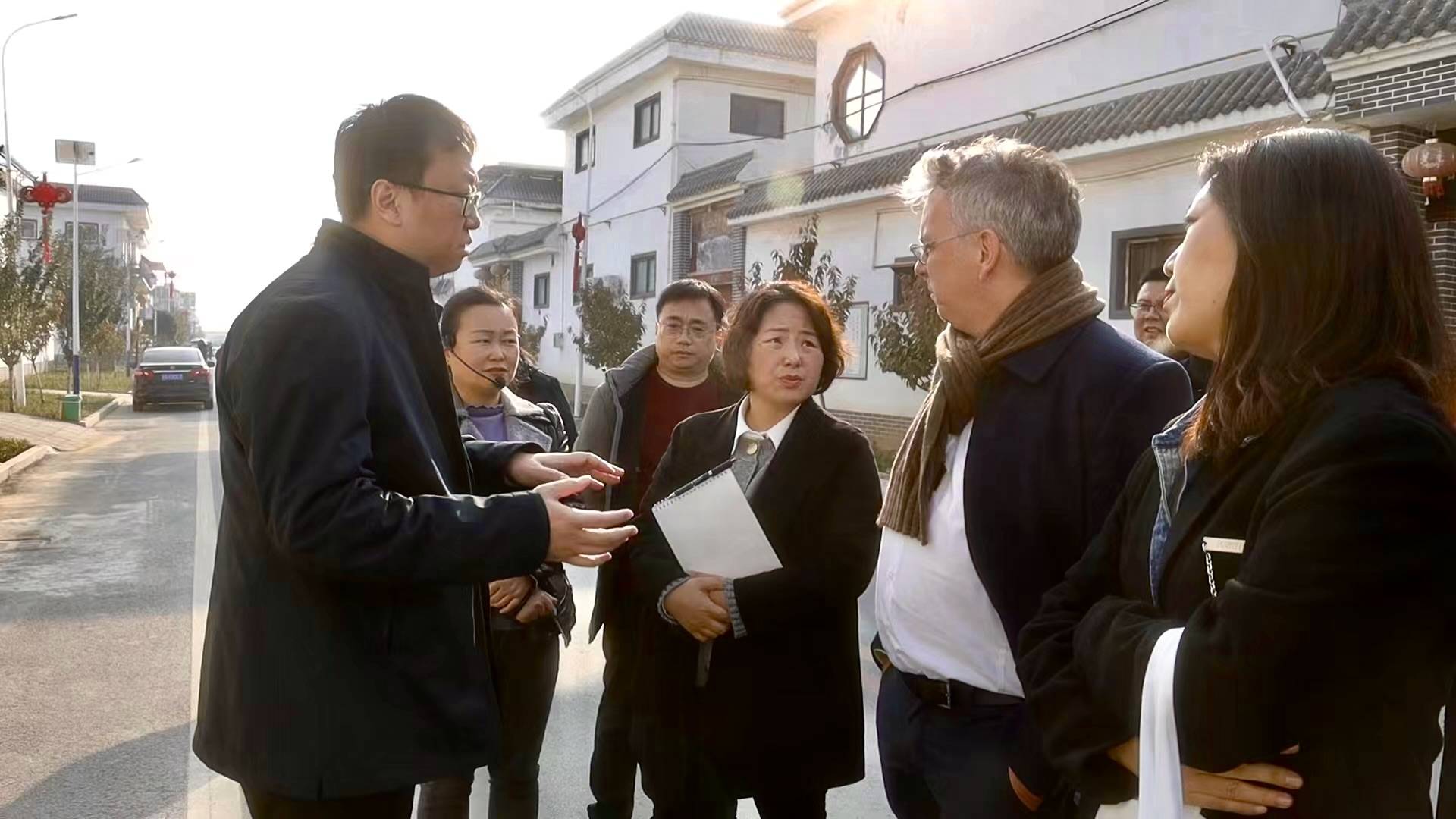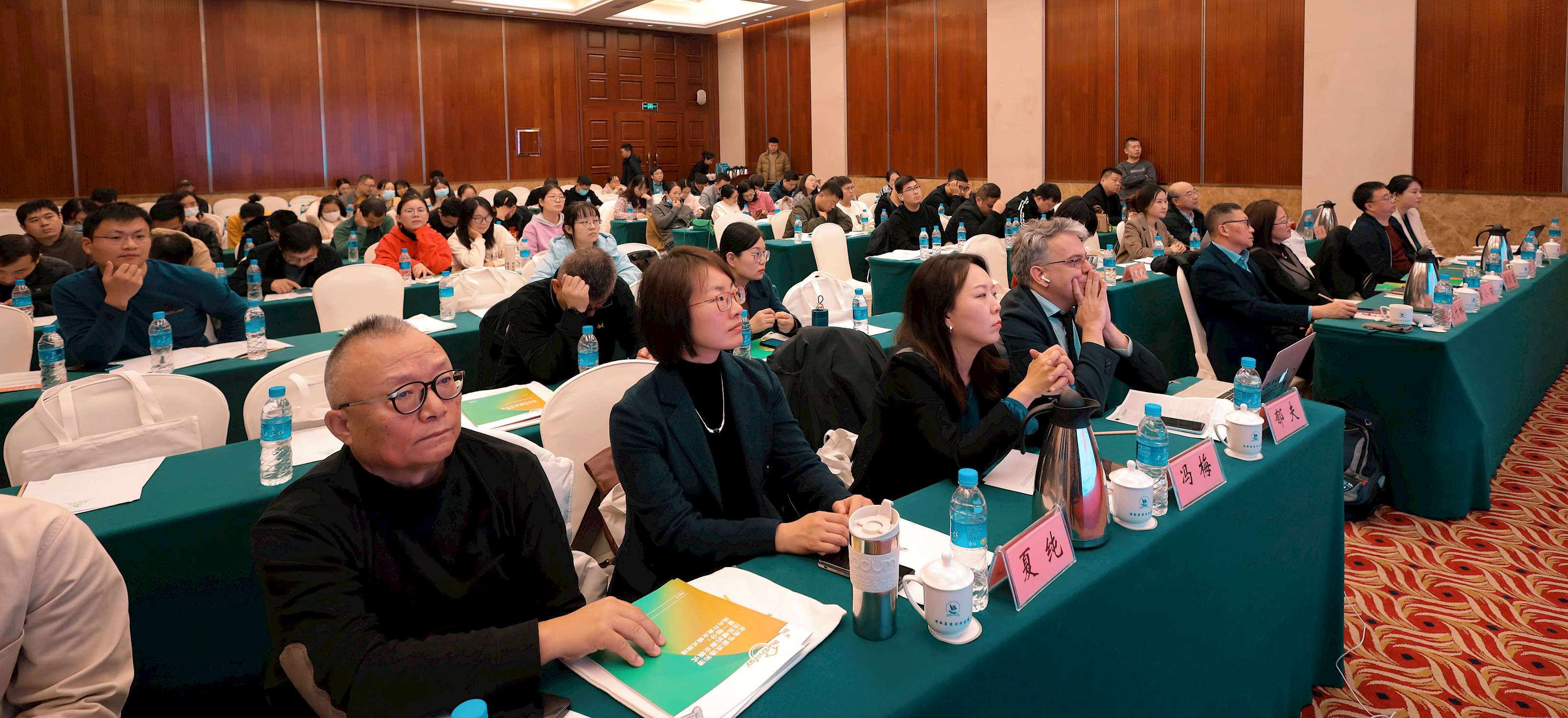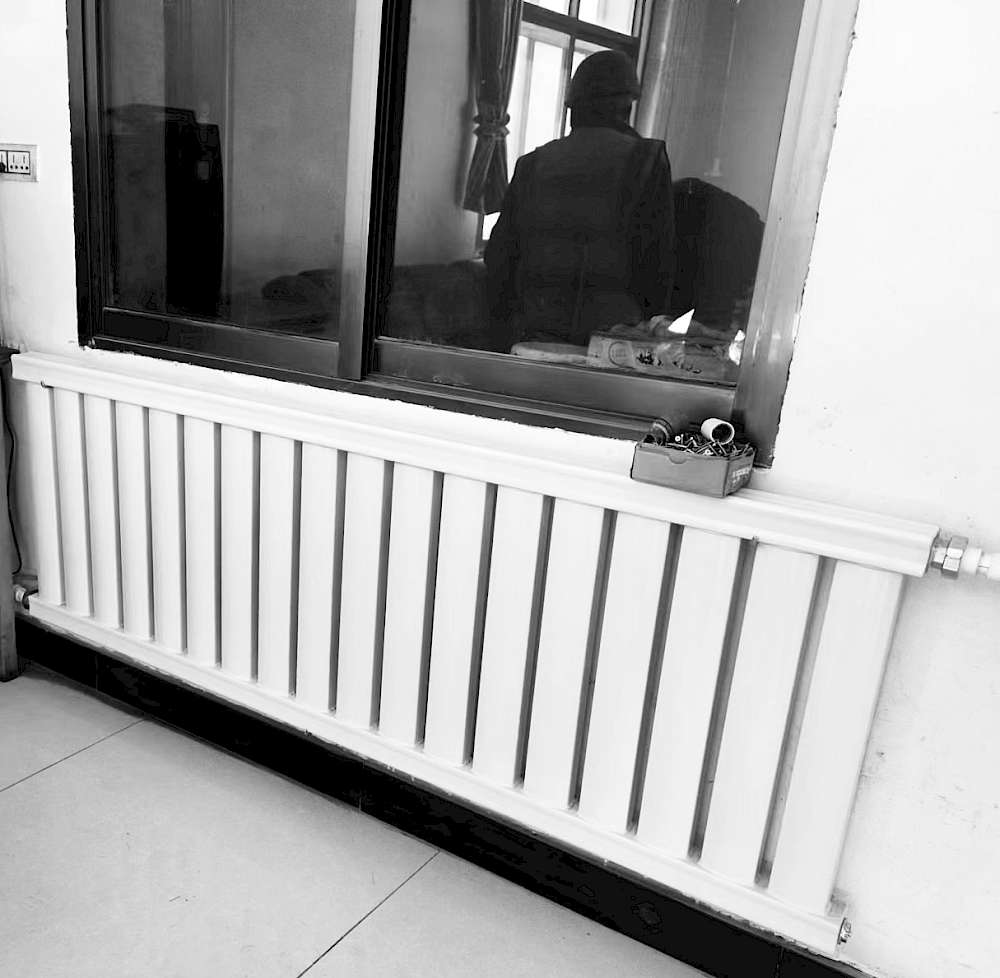
On November 21, the EU-China Forum on Advancing Low-Carbon Residential Buildings and the RurEnergy Annual Conference took place in Zhengzhou, Henan Province. Implemented by The Wuppertal Institute for Climate, Environment and Energy (WI), together with its local partners, the EU funded SWITCH-Asia RurEnergy: Promoting sustainable residential energy consumption in rural China, promotes the adoption of cost-effective energy retrofitting solutions for rural households, integrating thermal performance improvement and sustainable renewable heating and cooking. The project is also invested in promoting energy efficient behaviour change among rural households in the provinces of Henan and Gansu.
Mr. Pierre-Yves Lucas, Cooperation Team Leader from the EU Delegation to China welcomed participants to the Forum. He briefly outlined the EU’s ‘Fit-for-55 Package’ , in particular, concerning the building energy efficiency sector, and expressed hope for RurEnergy's potential to contribute significantly to China's climate objectives for 2030 and 2060.

Following the opening session, the project team presented recent accomplishments, highlighting two key reports on innovative business models and financial mechanisms. Thematic sessions unfolded, fostering knowledge exchange among organizations from both the European Union and China.
Sessions focused on crucial aspects of residential energy retrofit and clean heating in both regions, with particular attention to technological advancements, sustainable business models, and financing mechanisms. During the technology and policy session, EU experts from the Wuppertal Institute and Regulatory Assistance Project (RAP) Europe provided insights into the overarching policies related to the decarbonization of residential buildings and the development of heat pumps in the EU.
Chinese experts, on the other hand, shared details on residential building policies in China, Gansu Province, and Henan Province, alongside showcasing technological innovations such as the PV-Energy Storage-Direct Current-Flexible Loads (PEDF) Building System. One session focused on financing, where a representative from the Joint Research Center of the EU Commission provided an overview of financing residential building energy retrofits, and additionally, an expert from the Buildings Performance Institute Europe delved into on-bill financing practices in the EU.
Similarly, Chinese experts presented strategies for green financing to promote residential building energy retrofits and clean heating in China, offering tailored recommendations for Henan Province.
 Preceding the Forum on November 20, the EU Delegation joined the project team in a field trip to a 400-household village in Hebi City. They visited a pilot project supported by RurEnergy, exemplifying the tangible benefits of technologies like exterior wall insulation and low-temperature air-source heat pumps. The energy retrofit has substantially reduced energy consumption while enhancing the thermal comfort and overall living quality of households.
Preceding the Forum on November 20, the EU Delegation joined the project team in a field trip to a 400-household village in Hebi City. They visited a pilot project supported by RurEnergy, exemplifying the tangible benefits of technologies like exterior wall insulation and low-temperature air-source heat pumps. The energy retrofit has substantially reduced energy consumption while enhancing the thermal comfort and overall living quality of households.
On November 23, a second visit took place in Tianshui, Gansu province, where the team provided technical assistance in the utilization of locally sourced materials for exterior wall insulation, coupled with the integration of modern biomass for both heating and cooking purposes.
On November 24, RurEnergy also organized a workshop in Lanzhou, Gansu province, with a focus on green finance to support clean heating and energy retrofits in rural homes.
The guideline for green financing tailored specifically to the Gansu context was introduced with the aim to drive forward Gansu's green finance to support sustainable energy consumption in rural areas. Representatives from local governmental agencies, MSMEs, and financial institutions actively participated in dynamic discussions covering the current situation of clean heating and energy retrofits in rural areas, the existing landscape of green finance in Gansu, the associated challenges and opportunities, and the details of the developed guideline.


